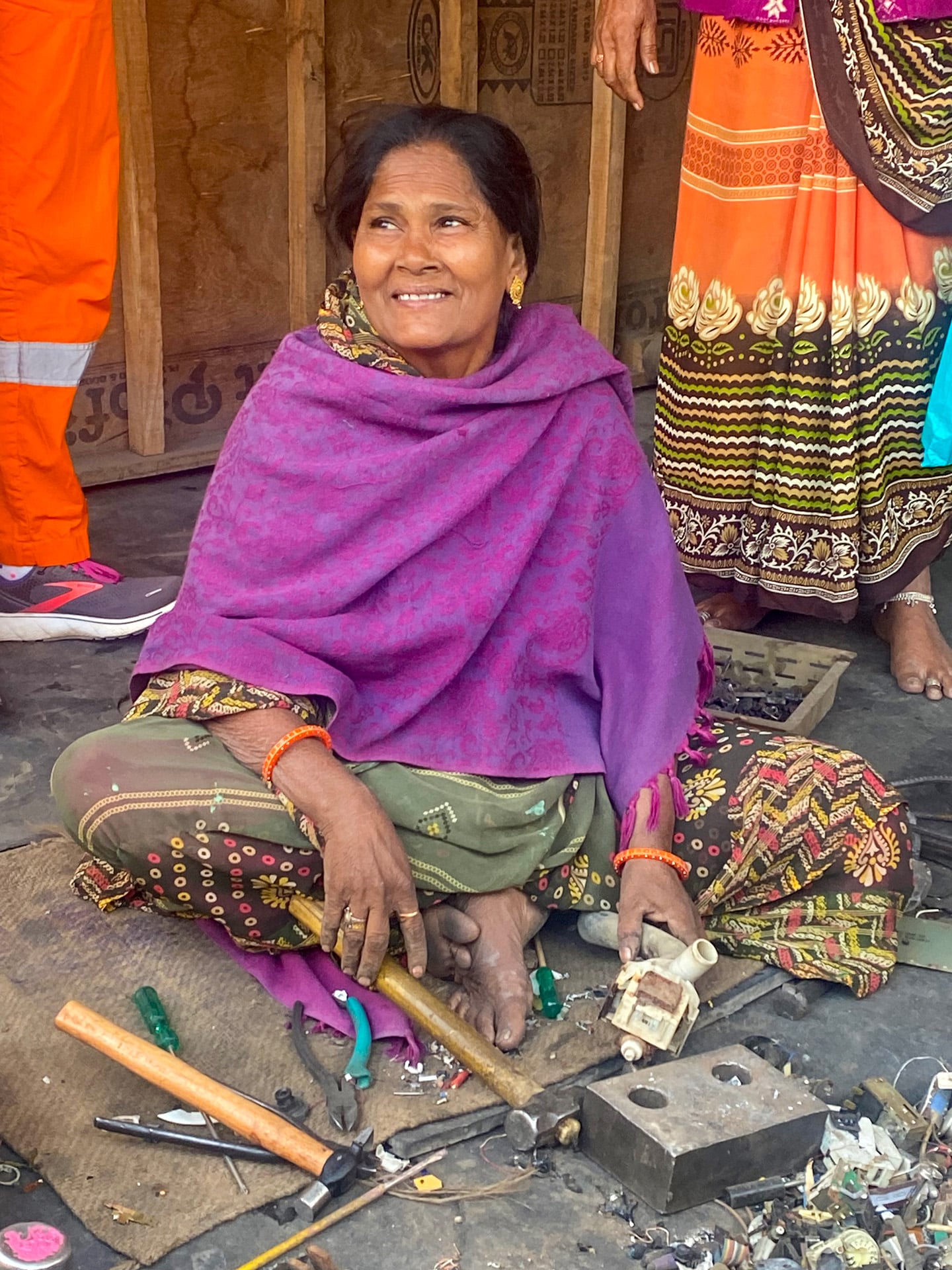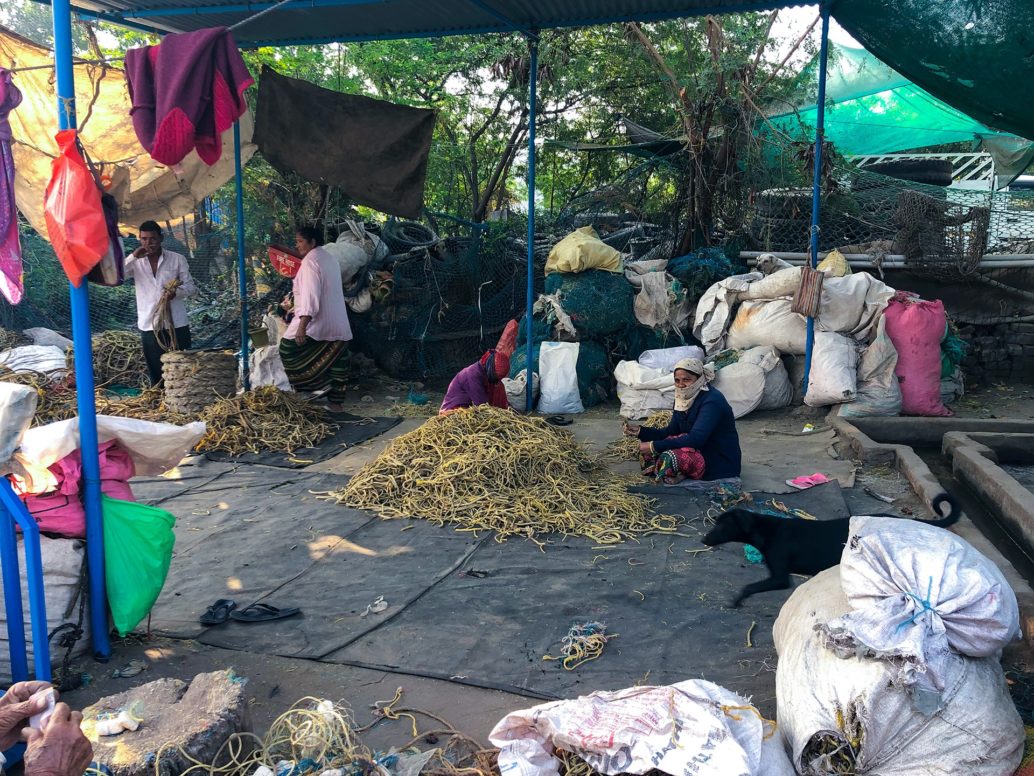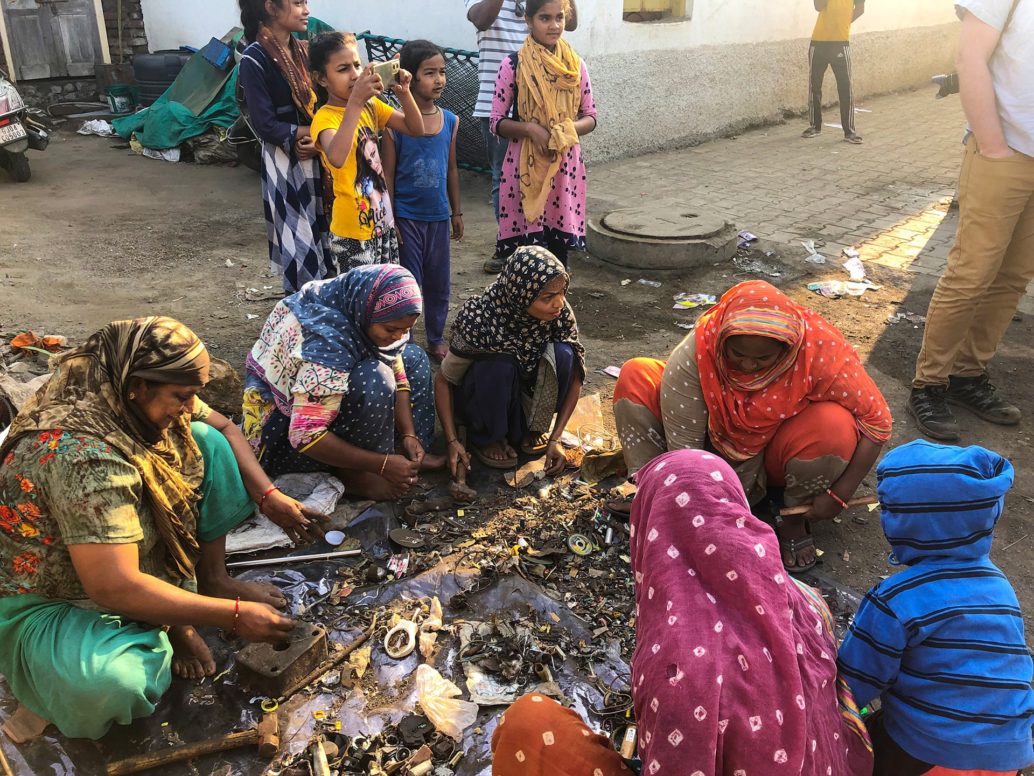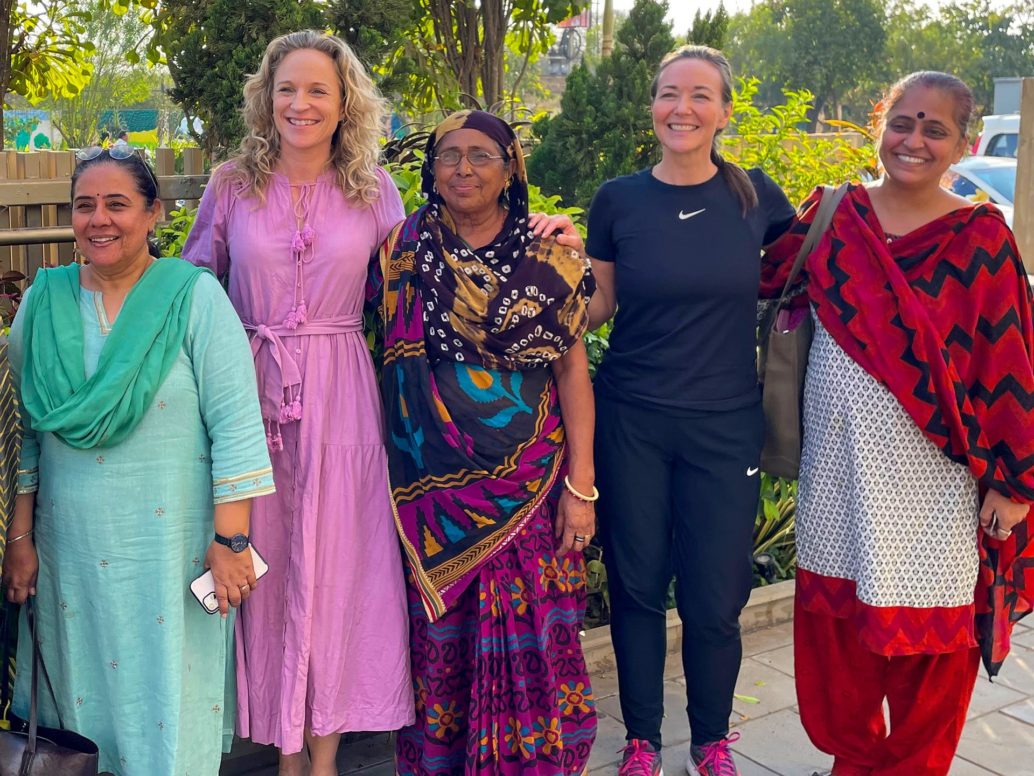

Grieg Foundation has awarded 4.9 million NOK over three years to strengthen female workers’ position in the ship recycling downstream industry.
Grieg Foundation has awarded SEWA (Self Employed Women’s Association) 4.9 million NOK (approx. 450,000 USD) over three years to empower women workers in the ship recycling downstream industry.
We in Grieg Green have assisted SEWA in the application process. We will assist in the project with our expertise in safe work practices and handling of hazardous materials.
Alang, located in the Gujarat state of India, is the largest shipbreaking facility in the world. It’s home to approximately 120 shipbreaking yards spread across 10 kilometres of coast. Thousands of women in the area are informal workers related to ship recycling activities but not formally employed by the yards.

These women, handling e-waste such as fluorescent light tubes, discarded mooring ropes, and other scrap materials, are typically self-employed. They are only able to access the waste products that nobody else wants to buy and try to earn a living by separating and then upcycling or reselling the waste materials.
“Their work is manual and mainly performed in their homes, surrounded by their family, and with poor working conditions. The risk of injuries to eyes, hands, and skin is considerable, and they are exposed to hazardous materials like mercury and various organic pollutants, ” says our Head of Technical and HSEQ, Elin Saltkjel.
SEWA will implement the project at Bhavnagar city in Gujarat, where most of the material processing takes place, and it will include the following activities:

About SEWA (SELF-EMPLOYED WOMEN’S ASSOCIATION)
SEWA the single largest Central Trade union registered with a membership of over 2.5 million poor, self-employed women workers from the informal economy across 18 states in India. SEWA was founded in 1972 in Ahmedabad.
The SEWA approach is to address the needs of the worker as a labourer, as well as a woman. This integrated and holistic view of workers has given birth to new and innovative ways to fight poverty and vulnerability. The trade union’s goals are full employment and self-reliance.
Full Employment means work security, income security, food security, and social security, which includes health care, childcare, insurance, pension, and housing at the household level.
Self-Reliance is the ability to work individually and collectively to achieve economic freedom and retain decision-making power over matters that concern the female workers’ lives and livelihoods.
SEWA have formed trade cooperatives for better income, skill upgrades, marketing, and access to credit. Cooperatives have been built to gain access to banking, healthcare, childcare, insurance, housing, and legal services, a safety net that protects women workers from falling into a spiral of vulnerabilities.

About Grieg Foundation
Grieg Foundation was established in Bergen, Norway, by the Grieg family in 2002 and derives from a long and proud maritime tradition. Grieg started its shipping endeavours in 1884 and is a well-reputed group of companies with a strong ESG focus. The Grieg Group is family-owned, where the Grieg family owns 75% of the Grieg Group, and the Grieg Foundation owns 25%.
For generations, the Grieg family has been conscious of leaving footprints by giving back by supporting humanitarian, social and cultural aspects of life. They are committed to improving the lives of future generations through the support of projects and initiatives that create meaningful change for individuals and communities.
Grieg Foundation believe all humans have equal value and deserve the opportunity to pursue their dreams, no matter their culture and background. They look for innovative projects that create positive change with lasting impact on individuals and communities. Small or big, we fund projects where our support plays a crucial role and makes a difference in the success of the project.
They are active partners and help projects create long-term change by sharing knowledge, stories and results to inspire and show others what is possible.
The UN Sustainable Development Goals (SDGs) are a global call to action for positive change. Everything they do and support is anchored in their commitment to the SDGs.